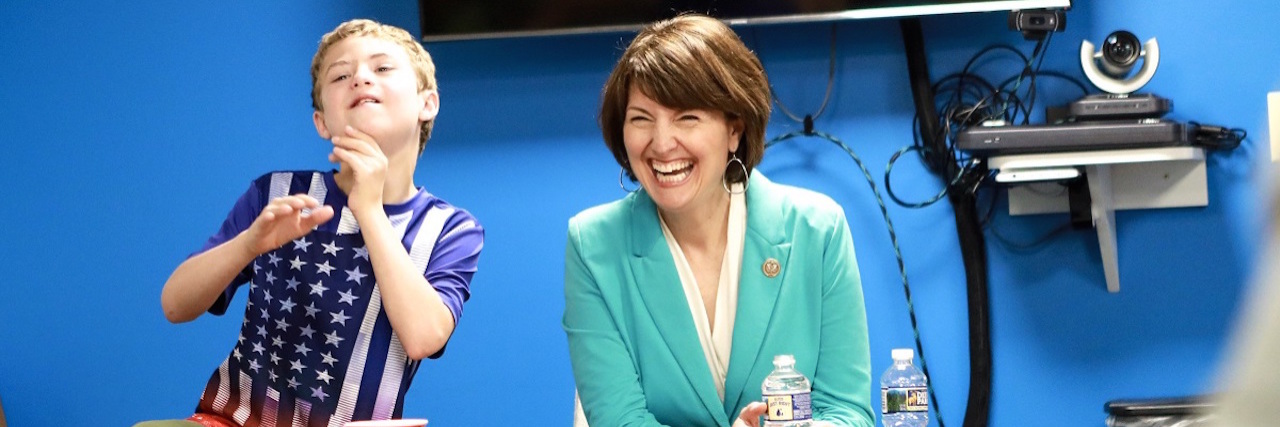Giving People With Down Syndrome a Fair Chance at Employment
Editor's Note
This story reflects an individual’s perspective and is not an endorsement from The Mighty. We do hope it will start a discussion, so let us know your thoughts in the comments below.
This piece was co-written by Cathy McMorris Rodgers, U.S. Representative for Washington’s 5th congressional district, and Sara Hart Weir, CEO of the National Down Syndrome Society.
Meet Kayla Campos. She is the CEO of K Bee Candles. She’s 28 years old, bilingual and she is a successful business owner with a passion for making beeswax candles in her own kitchen. She also has Down syndrome.
Today, on World Down Syndrome Day, we are celebrating Kayla and all those who, like her, bring a hard work ethic, joy and love to our communities.
Just like everyone else, people with Down syndrome have dreams and aspirations. They want to go to college, find a career and pursue their passions. For many, that means finding a job that empowers them to live meaningful and independent lives.
With more jobs available in our economy than people looking for work, more and more employers are hiring people with disabilities. In what’s been called a “dramatic turnaround,” a record number of people with disabilities are joining the workforce. In fact, the unemployment rate for people with disabilities is falling faster than the general population. That’s amazing news that we never thought was possible nearly 10 years ago, when the unemployment rate for people with disabilities hit 15 percent.
People with Down syndrome, who are eager and able to join the workforce, deserve every chance to seize new opportunities and find a job — a job that means so much more than a paycheck because it’s a foundation for a better life.
However, a tighter labor market that is encouraging employers to hire previously untapped job candidates is only part of this story. We’ve also worked and made progress on updating out-of-date laws that have forced people with Down syndrome to choose between a job or risk losing their critical benefits.
Most recently, part of the Tax Cuts and Jobs Act attempted to knock down legal barriers that are trapping people with disabilities in poverty. Not only does tax reform lower the tax rate for those running a small business, it also builds on the legacy of the Achieving a Better Life Experience (ABLE) Act that created tax-free savings accounts for job training, education and disability-related expenses.
The ABLE to Work provision in the tax reform expands these accounts and allows beneficiaries who earn income for a job to save up to the Federal Poverty Level, which is currently $12,060, in addition to their annual contribution limit of $14,000. This is particularly helpful for people with disabilities who want to work but cannot contribute to an employer retirement savings plan.
ABLE to Work makes it possible for people with Down syndrome and other disabilities to explore the workforce, find a good-paying job and save more of what they earn without fear of losing their benefits.
Of course, our work to empower people with disabilities is never over. There’s more to do to close further close the gap between the many Americans with disabilities looking for a job and the smaller percentage of those who find it. That’s why Cathy just introduced a bipartisan solution called the ABLE Age Adjustment Act to raise the age limit for eligibility to open an ABLE account from age 26 to 46.
For us, helping people with disabilities live happy, healthy and productive lives is not just good policy, it’s personal. Our loved ones with Down syndrome have had a tremendous impact on us and our families. It’s our mission to empower them to reach their full potential so they can share their talents with the world. On this World Down Syndrome Day, we invite everyone to join us on this mission. There are candle makers like Kayla, future small business owners, college graduates and contributing members of our society who depend on it.
What do you think? Let us know in the comments or read more stories about this topic:

